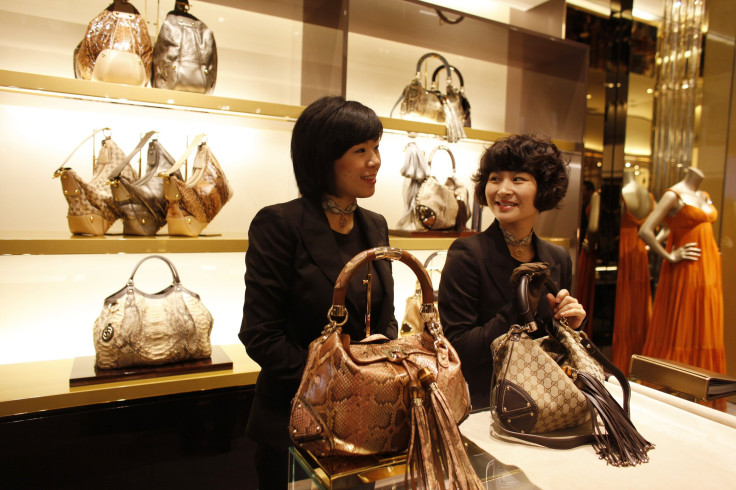Chinese Luxury Spending Declines Sharply Due To Chinese Government's Austerity Plan

The Chinese government’s austerity plan, instituted last December to combat corruption and bribery, is having the effect of reducing the amount of luxury goods the Chinese are buying, and slowing the expansion plans of global luxury good brands in China, according to 21cbh.com.
China has recently surpassed the U.S. as the top consumer of luxury goods, according to a 2012 study by Bain & Company – the Chinese make up 25 percent of the luxury goods market. On the other hand, China’s per capita GDP, while rising steadily, is still lagging behind about 80 countries. The country’s consumption of luxury goods is another indicator of the ever-widening economic disparity between the wealthy and poor. However, China’s consumer spending on luxury goods may soon be on a sharp decline.
At the end of last year, the Chinese government announced an austerity plan to discourage overspending, especially within state-owned organizations and agencies. In addition, it has banned advertising of luxury goods in state-run media. Already, these steps are showing results: In the period from Jan. 20 to Feb. 20, 2013, the Chinese new year holiday, traditionally the highest-spending period for the country, mainland China’s luxury spending totaled $830 million, a fall of 53 percent compared to the same period last year. Many luxury brands are slowing their expansion plans, not opening new stores for the time being.
Part of this decline can likely be attributed to the large difference in pricing of luxury goods in China and overseas. Chinese consumers are now wising up to that difference and have become increasingly global in their shopping – 60 percent of the total luxury spending by Chinese citizens in 2012, $34.6 billion, took place outside of China, according to the Bain report, and in 2012 luxury goods consumption in China only grew 7 percent, a far cry from more than 30 percent in the previous two years.
But a big part of the story is a tightening of spending on luxury goods using government funds. Luxury brands, it seems, have adapted themselves to the Chinese market.
“Whatever they buy, they can get a receipt that says, ‘office supplies’,” a luxury brand’s sales consultant, who preferred to remain unidentified, said. “That makes the reimbursement easy.”
It’s common practice in China for employees to get reimbursed for work-related expenses, which usually does not include luxury goods purchases.
“Some customers don’t ask for prices when they purchase,” the sales consultant said. “Because usually it’s not their money they are spending.”
It seems common sense that a receipt should reflect what was purchased. However, in China, international luxury brands have indulged consumers’ special needs. These companies know very well whether this practice is legal or not, and have become increasingly concerned that assisting in the spending of public funds will cause them trouble. Last year, with the austerity plan, many luxury brands issued internal notices, announcing that the stores should not provide wrongly labeled receipts any longer.
“Without these receipts,” a sales person for a luxury brand said, “our sales have gone down 20 percent.”
© Copyright IBTimes 2024. All rights reserved.





















